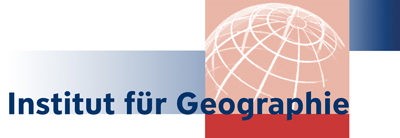Stefan Hippe
Stefan Hippe
Research fellow in the Working Group „Regional Development“ of Prof. Dr. Tobias Chilla.
Newsroom: www.regionalentwicklung.bayern
Profil at ResearchGate & Google Scholar
- since 2019: Participation in the Working Group „Regional Development“ of Prof. Dr. Tobias Chilla, since 2021 as research fellow on the Institute of Geography
- 2018-2020: Master studies in Cultural Geography with distinction (Friedrich-Alexander-University Erlangen-Nuremberg), Master thesis on “The impacts of decentralization and metropolization on the future potentials of selected French cities – a comparing cluster analysis”
- 2014-2018: Bachelor studies in Cultural Geography (Friedrich-Alexander-University Erlangen-Nuremberg)
- Practical experiences at GfK consumer research and Regional Management (district Fürth)
Journal articles
- Hippe, S. (2024): Different impacts of similar crises? The financial and COVID-19 crisis in border and non-border regions. European Planning Studies. https://doi.org/10.1080/09654313.2024.2406483
- Bertram, D., Chilla, T. & Hippe, S. (2023): Cross-border mobility: Rail or road? Space-time-lines as an evidence base for policy debates. Journal of Borderlands Studies. https://doi.org/10.1080/08865655.2023.2249917.
- Bertram, D., Chilla, T. & Hippe, S. (2023): The laboratory dimension in cross-border development: Insights from the Czech-German border region. Trendy v podnikání – Business Trends, 13(2), 4-16. https://doi.org/10.24132/jbt.2023.13.2.4_16
- Hippe, S., Bertram, D. & Chilla, T. (2023): Convergence and Resilience in border regions. European Planning Studies. https://doi.org/10.1080/09654313.2023.2170214
- Hippe, S., Bertram, D. & Chilla, T. (2022): The COVID-19 pandemic as a catalyst for cross-border cooperation? Lessons learnt for border-regional resilience. Europa XXI, 43, 1. https://doi.org/10.7163/Eu21.2022.43.1.
- Turner, C., Chilla, T. & Hippe, S. (2022): Cross-border cooperation patterns in the context of domestic economic development: A case study of the Upper Rhine. Europa XXI, 43, 2. https://doi.org/10.7163/Eu21.2022.43.2
- Chilla, T., Hippe, S., Große, T. & Walker, B.B. (2022): COVID-19 incidence in border regions: Spatiotemporal patterns and border control measures. Public Health 202: 80-83. https://doi.org/10.1016/j.puhe.2021.11.006
Book chapters
- Hippe, S. (2024): Finanz- und Coronakrise in Grenzregionen und innerstaatlichen Regionen: Vergleich der Resilienz. In: F., Weber, O., Kühne, J., Dittel (Hrsg.) Transformation Processes in Europe and Beyond. Regionale Geographien | Regional Geographies. Springer VS, Wiesbaden. https://doi.org/10.1007/978-3-658-42894-5_20
- Hippe, S. & Chilla, T. (2021): Cohesion and resilience in Czech-German border regions: the impacts of crises. In: Zdeněk Kresa (ed.): Opportunities and Threats to Current Business Management in Cross-border Comparison 2021 (68-78). GUC Chemnitz. Online available at: https://www.researchgate.net/publication/358277010_COHESION_AND_RESILIENCE_IN_CZECH-GERMAN_BORDER_REGIONS_THE_IMPACTS_OF_CRISES
Project reports and working papers
- Bertram, D., Chilla, T., Hippe, S. et al. (2023): Kooperationsprofile deutscher Grenzregionen: Themen, Akteure, Governance. http://dx.doi.org/10.13140/RG.2.2.16151.48802
- Chilla, T., Bertram, D., Hippe, S. et al. (2023): Grenzraumakademie: Grenzregionen Deutschlands mit seinen Nachbarländern – Dokumentation der Konferenz. DOI: 10.13140/RG.2.2.34163.30240
- Chilla, T., Bertram, D., Hippe, S. et al. (2023): Grenzraumatlas – Arbeitsmaterialien aus dem BMBF-Projekt Cohesion in Border Regions (CoBo). DOI: 10.12140/RG.2.2.32406.93766
- Chilla, T., Hippe, S. & Lambracht, M. (2022): Evaluation des Bayerischen Zentrums für Tourismus (BZT); im Rahmen des Vorhabens BZT — Evaluierung der Förderung und der Entwicklungsoptionen; im Auftrag des Bayerischen Staatsministeriums für Wirtschaft, Landesentwicklung und Energie (StMWi)
- Chilla, T., Hippe, S. & Lambracht, M. (2022): Kontextinformationen zur Evaluation des Bayerischen Zentrums für Tourismus – Wirtschaft, Wissenschaft, Vernetzung; im Rahmen des Vorhabens BZT — Evaluierung der Förderung und der Entwicklungsoptionen; im Auftrag des Bayerischen Staatsministeriums für Wirtschaft, Landesentwicklung und Energie (StMWi)
- Bertram, D., Hippe, S. et al. (2019): Räumliche Integration: Das Beispiel der bayerischen Grenzregionen zu Österreich und Tschechien. Working Paper No. 3 der AG Regionalentwicklung an der FAU. Online unter: http://dx.doi.org/10.13140/RG.2.2.21585.25440
Presentations
- “Cross-border mobility: Rail or road? Space-time-lines as an evidence base for policy debates”. 35th International Geographical Congress 2024, Dublin (IE).
- “Resilience in border regions in times of multiple crises: conceptual and empirical reflections” (Session chair with Julia Dittel). 35th International Geographical Congress 2024, Dublin (IE).
- “The laboratory dimension in cross-border development: Insights from the Czech-German border region”. XB-CON International Conference 2023. 09.-10.11.2023, Železná Ruda (CZ).
- “Different impacts of similar crises? Comparing the financial and COVID-19 crisis in border and non-border regions”. Borderlands facing a polycrisis in the 21st century. Resilience and future perspectives of cross-border relations. 10.-12.09.2023, Wrocław/Opole (PL).
- “Stärken, Schwächen & Handlungsoptionen der Grenzregionen im deutschlandweiten Vergleich”. Grenzraumakademie 2023. 20.-21.04.2023, Berlin.
- “Ergebnisse des Projektes BMBF CoBo (Cohesion in Border Regions). Die deutsch-polnische Grenzregion im Vergleich”. AG Umsetzung Gemeinsames Zukunftskonzept 2030 (DE-PL). 07.03.2023, Cottbus.
- “Resilienz in Krisenzeiten – Grenzregionen und innerstaatliche Regionen im Vergleich”. Jahrestagung 2022 des AK Industriegeographie. 24.-25.11.2022, Wiesbaden.
- “Comparsion of Border Regions in Germany – Interim results from the project Cohesion in Border Regions. Insights for the Czech-German border region”. Internationale wissenschaftliche Konferenz – Peripherien in der Regionalentwicklung Tschechiens. 14.-15.11.2022, Plzeň (CZ).
- “Resilienz in Krisenzeiten – Grenzregionen und innerstaatliche Regionen im Vergleich”. Europa(-Welten) im Umbruch –Grenz(ziehung)en im Wandel. Gemeinsame Tagung der Deutschen Akademie für Landeskunde (DAL) sowie der Arbeitsgruppe Europastudien und des Clusters für Europaforschung (CEUS) der Universität des Saarlandes. 5.-6.10.2022, Saarbrücken.
- “Cohesion and resilience in Czech-German border regions: a post crisis reflection”. Opportunities and Threats to Current Business Management in Cross-Border Comparison 2021 (XB-CON International Conference). 11.-12.11.2021, Železná Ruda (CZ).
- Quantitative Methoden der empirischen (Sozial- und) Regionalforschung (Vertiefte Methodik Master) SS 21, SS22, SS23, SS24
- Online-course Nachhaltige Regionalentwicklung administration (VL KG vertieft) SS21, WS 21/22, SS22, WS22/23, SS23, WS23/24, SS24, WS24/25
Research focus on cross-border spatial development and regional analysis, especially quantitative methods.
PhD project:
- Resilience in border regions
Selected projects:
- BorderData (2024-2026): The potential of new data sources for border-related knowledge gaps. Project of the Bavarian-Czech University Agency (BTHA).
- ESPON CROSSGOV (2024-2026): Governance mechanisms for cross-border functional areas.
- Cohesion in Border Regions (CoBo) (2021-2023): Territorialer Zusammenhalt in Deutschlands Grenzregionen. Project of The Federal Ministry of Education and Research (BMBF).
- Scientific monitoring of the project „Gemeinsamer grenzübergreifender Wirtschaftsraum Fichtelgebirge – Region Karlsbad“ in the funding programme ‚Resiliente Regionen‘ of the ‚Region gestalten‘-programme of the Federal Institute for Research on Building, Urban Affairs and Spatial Development.
- Evaluation of the Bavarian Centre for Tourism (BZT) (2022): As part of the project Bavarian Centre for Tourism – Evaluation of funding and development options; commissioned by the Bavarian State Ministry for Economic Affairs, Regional Development and Energy (StMWi).

